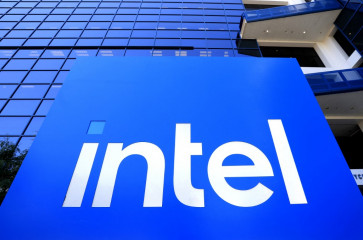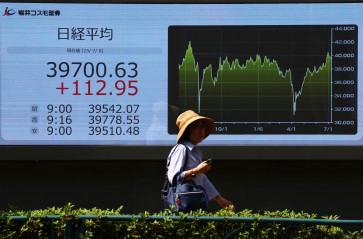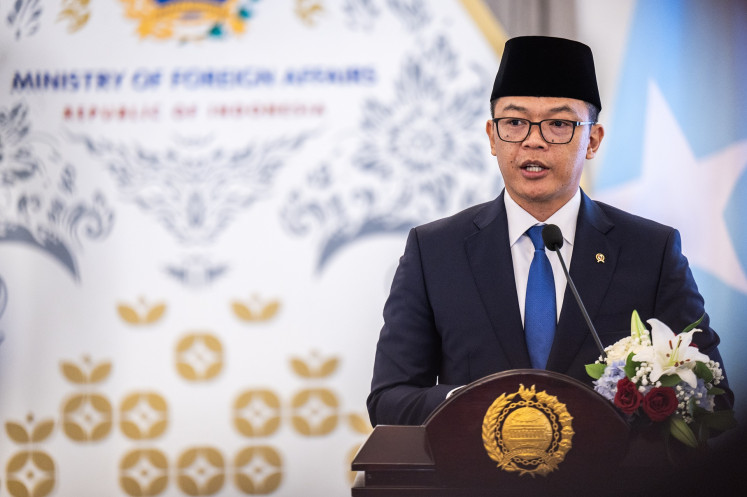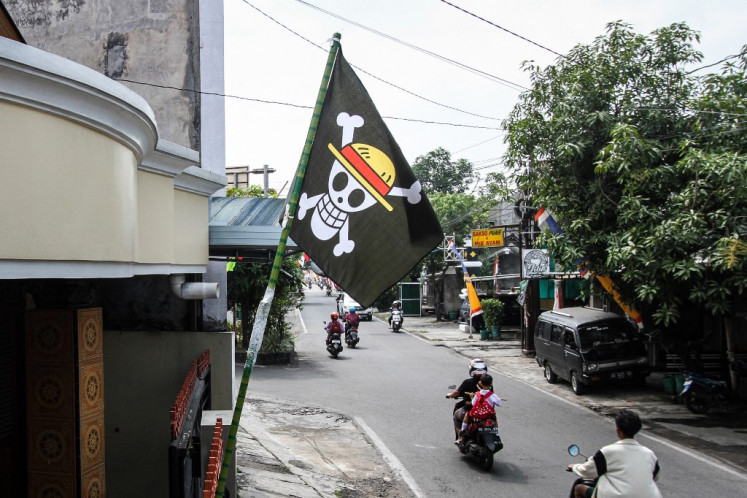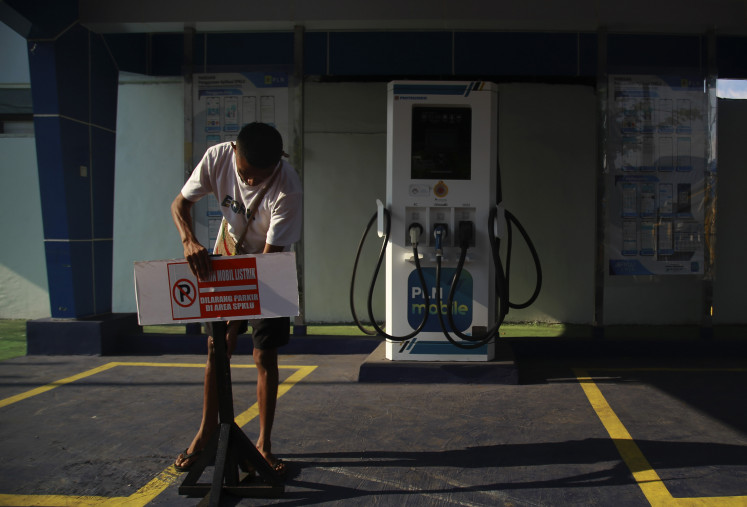Popular Reads
Top Results
Can't find what you're looking for?
View all search resultsPopular Reads
Top Results
Can't find what you're looking for?
View all search resultsResuscitating the long-neglected state defense industries
After operating on the verge of bankruptcy for more than a decade, state aircraft maker PT Dirgantara Indonesia has finally seen a glimmering light at the end of the tunnel
Change text size
Gift Premium Articles
to Anyone
A
fter operating on the verge of bankruptcy for more than a decade, state aircraft maker PT Dirgantara Indonesia has finally seen a glimmering light at the end of the tunnel.
It was only recently that policymakers seriously began to help revive the company.
For starters, Dirgantara is receiving Rp 3.83 trillion (US$425 million) worth of loan conversions this year, and has been promised Rp 2.06 trillion in cash next year.
“The cash injection is to finance our working capital and to purchase new machinery,” said Dirgantara’s executive director Budi Santoso.
The Bandung-based company is confronted with a declining production capacity, and research and development (R&D) capabilities. Most of its machinery is more than 25-years-old, while around 47 percent of its workforce is beyond retirement age.
However, after more than a decade of negligence and mismanagement, Dirgantara and other state-owned defense companies are being given a boost.
Dirgantara, along with shipyard PT PAL and weapons producer PT Pindad, are now the recipients of restructuring programs, supervised by state asset management company PT Perusahaan Pengelola Aset (PPA).
The restructuring includes capital injection and loan conversions from the state budget, revamping production facilities, boosting R&D, improving business plans and strengthening human resources management.
The target is plain: The companies are slated to become the backbone suppliers of the Indonesian Military’s (TNI) primary weapons defense system by 2024.
Under the plan, Dirgantara will have the capability to build logistics transport aircraft, maritime patrol aircraft, missiles, and torpedoes. The company is also expected to produce jet fighters with F-16 specifications in cooperation with South Korea.
PAL is slated to produce corvettes, fast missile boats, and submarines, while Pindad — the only one of the three companies still making a profit — is set to produce combat tanks.
“All the supports are in place for us to upgrade our capabilities,” said Pindad president director Adik Sudarsono.
Military observer Air Chief Marshal (ret.) Chappy Hakim, who served as the Air Force chief of staff between 2002 and 2005, expects no prompt outcomes from the restructuring because defense companies need enormous subsidies and special treatment before they can start making a profit.
“It’s obvious that they will book losses in their early years, given that their products are more expensive compared to those produced by overseas companies,” he said.
“Once orders flow in from the TNI, the Police and overseas buyers, their products will become cheaper.”
What does matter, he says, is a strong commitment from local institutions to purchase the products despite entrenched brokering practices that lure many TNI and police officers into fee-seeking businesses by approving overseas purchases.
PAL’s executive director Harsusanto confirmed the challenge of obtaining orders from the TNI and other local institutions.
“Like any other company, we have to compete for orders. But there are also other factors at play that impede local companies from winning the orders. Certain people lobby for orders to be placed overseas in exchange for personal gain.”
Executives from PAL, Dirgantara, and Pindad have repeatedly expressed to the House of Representatives the lack of commitment from the TNI and the police in supporting local companies.
“In some cases, we were better than overseas companies. But we didn’t get the orders as we could not provide commissions and overseas leisure trips to the officers,” said other executives with the companies.
Former defense minister Juwono Sudarsono acknowledged the difficulties in prohibiting officers from pocketing commissions. He said the tolerable fees nowadays ranged between 8 and 10 percent of the procurement value, down from the hitherto, normal 40 percent.
With fee-seeking practices remaining rampant, the cash-strapped state defense companies have no other option than to seek political protection from the unfair competition practiced by foreign companies.
The House’s Commission I overseeing defense, foreign affairs and information is now deliberating a bill that will force the TNI and the police to place orders with the state defense companies and entirely eradicate their fee-seeking businesses. The bill is scheduled for enactment by the end of this year.
But Deputy Defense Minister Lt. Gen. Sjafrie Sjamsoeddin denied any fee-seeking practices that influence procurement policies at his ministry or at TNI headquarters, saying the system would no longer provide any leeway for such misbehavior.
Aside from the fee-seeking mind-set that has sidelined state defense companies, a labyrinth of red tape has also hampered the revival of the defense industries.
Harsusanto cited a lack of understanding by officials at the Finance Ministry and the central bank (BI) about the defense industry business as the main impediment for the companies’ gaining preferential treatment.
State companies, he said, are still burdened with import duties and value-added taxes by the customs office, despite an agreement to exempt such companies.
State defense companies, says Harsusanto, are also having difficulties in securing loans because banks perceive such companies as “too risky”, despite the repeated pledges by BI officials to help settle the case.
Company restructuring should also be complemented with improved management of the state budget.
“Long-term contracts should be made available for state companies to ensure their sustainability and create accurate business plans,” said military observer Andi Wijayanto.
“For example, Pindad plans to build 150 Anoa panzers by 2024, but there is no information on how many should be built annually. This has caused problems in cashflow and in planning.”
Should the government ensure annual orders, it would be easy for Pindad to contact their suppliers and plan production schedules, according to Andi.
The imprecise channeling schedule of the state budget has also created uncertainty for the companies.
In some cases, the budget is only disbursed in November to the Defense Ministry for product delivery in December, thus forcing the state companies to seek other financial resources to help cover the delay.
The companies have to deliver the products on time or risk paying penalties.
These problems are unlikely to be settled anytime soon, as there are no indications the government will come up with a breakthrough in its state budget management.
Despite the hurdles, demands from the TNI, the police and other local institutions are deemed sufficient to keep the state defense companies afloat, according to Andi.
For the TNI alone, the government has recently decided to allocate Rp 99 trillion up until 2014 for the purchase of primary defense weapons and their maintenance. Should the planned bill be enacted, most of the funds are expected to flow into the coffers of the state defense companies.
“The demand is enormous. Only by developing our domestic market can we revive our defense industries,” said Andi.



